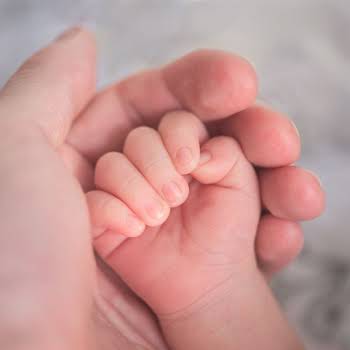By Jessie Collins
26th Sep 2017
26th Sep 2017
There was plenty of reaction to last week’s findings by Am?rach Research for the baby cream brand Sudocrem, who surveyed 400 mothers of young children and 400 grandmothers who are themselves mothers to adult daughters with children. There were some happy positives: almost nine out of ten of today’s mothers (89%) say they are satisfied with their role as a mother, while half of all mothers are happy with their work/life balance. Then there was the-all-to familiar negatives: only one in three mothers (35%) feel valued by their family, with an even smaller number, one in ten (12%), feeling valued by society. A third of today’s mothers rarely or never have time for themselves, while 60% say they were not able to continue to pursue hobbies after becoming a mother.
But by and far the biggest reaction came from the stat that almost two out of three of today’s mothers (63%) said they would prefer to stay at home to raise their children if they had the option and were in a financial position to do so. It made front-page headlines, such was the revelation it seemed to bring, I’m thinking, to largely male journalists, or people without kids. To most mothers, it was probably just ?Yep, I totally know where that is coming from?.
The problem is that the whole discussion around this debate is frustratingly dogged by pundits and market researchers asking the wrong questions. First of all, often when the debate is raised about women staying at home with their kids, there is little discourse given to the fact that for many, staying at home is just not an option. Being a full-time parent who is not struggling on welfare is a well-off persons quandary. Raising a family in many parts of Ireland on one income that isn’t in the high-earning bracket is just a non-runner.
So there is a host of women going out to work who aren’t necessarily about being on a career ladder at that particular time, or reaching some dizzying heights of job satisfaction but are about keeping food on the table, and the wolf from the door. This should be a reasonably well-known fact in the public domain ??all husbands, friends, colleagues have to do is listen, or even look at the women/mothers in their lives. It doesn’t take much working out.
The deeper question though still, is that every female generation since the baby boomers have been primed to have careers, not to stay at home. It is what our fore-mothers fought for. And something we are all indebted to. However society was ill-prepared to manage us trying to do both, and for many, it would have felt like a failure to chose parenting over a career certainly in our early working life.
What is also often missed is all of this needs to be discussed and framed in the context that we are talking about a finite period of time in any woman’s working life. I am betting that the majority of those surveyed would have preferred to stay at home mostly for those early years, and then return to work in some capacity, with flexibility. One man’s reaction on the radio was to scoff at all the wasted education on these women who just want to just put their feet up and watch daytime TV. The reality is that they more then likely have worked for a number of years before having kids, and done the external contribution to society that is so wrongly valued far and above the work done in the home and will do so again when they are in a position to. Children’s needs, after all, change greatly over time.
Personally, I am one of those 37% of mothers who wants to work, even if circumstances allowed otherwise. I have been the equal, if not bigger, breadwinner in my household since becoming a parent so circumstances very much meant that I also needed to work. That was okay. I just would have liked a bit more time off work in the first year, and well-supported childcare. Parenting is by far the hardest thing I’ve ever done, or still do (see stat above about the thanklessness), I am crap at housework, and I need the satisfaction of work to make me feel complete.
I am essentially, a rubbish full-time parent, but not so bad on a part-time basis. But I do too, want that element of flexibility. But my guess is that behind the statistics of those women who want to stay home is the sense of being overwhelmed when trying to do both when your kids are young, and stuck between two very immovable objects: most employers want all of you, they want as much a monopoly on your brain as they can get, and so do your kids, so somebody always ends up losing. Women get ground down by the competition between those two things, and so feel it would just be easier if they were doing at least one thing well. Given that you can lose your job, obviously, and hopefully, not your kids, then the choice is pretty stark.
But where men are in this equation is the real question that is not yet still being asked. Are they happy to see their wives, partners, mothers of their kids stuck in this unhappy bind or do they want to stare the parenting load in the face and actually try and take some ownership of it? The prejudice and male filtering that findings like this get just exacerbates the problem. I offer you an alternate headline from that same survey. Scratch ‘Two-thirds of mothers want to stay at home with their kids’, instead, I give you ‘Just 14% of partners undertake at least half of all housework, while 19% undertake no household chores whatsoever.’ – that’s the headline we need to see and the only news that’s fit to print.























